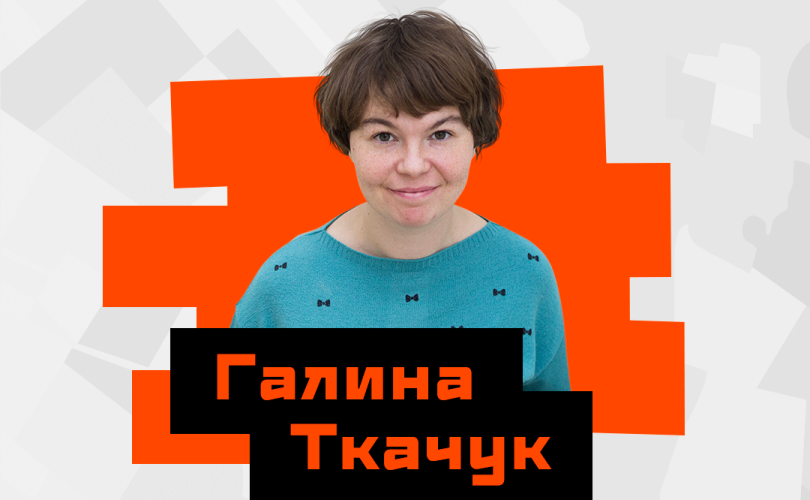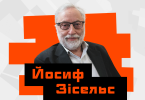The First Thing
I remember the first thing that came to my mind on the morning of February 24 when I heard missile strikes.
I feel both ashamed and not ashamed of this thought.
I thought: „Thank you, God, that it started at night.“
In February of last year, I had four weekly classes with children: two on Fridays at the Taras Shevchenko Central Library for children in Kyiv, and two on Saturdays at the Forest School in the town of Boyarka where I grew up. In those days, my biggest fear was that a full-scale war would break out during the day while I was with the children. Of course, I read the instructions for what to do in such situations many times, but it did not alleviate the fear.
The last time my classes at the library were held in-person, a large rainbow appeared in the sky above Kyiv. The children noticed it first because I was facing away from the window. The sight was incredible – a bright rainbow in February against the backdrop of the evening sky. For some reason, this magical phenomenon convinced me that there would be no war. I don’t know why.
When the war started, I checked the social media profiles of the parents of all the children I taught and knew from previous creative projects. I wanted to make sure they were safe, that their parents had evacuated them from Kyiv and the surrounding areas, and sometimes I sent private messages. Most of the families did evacuate their children. At first, I was happy, but then I burst into tears, partly out of selfish reasons.
These are the thoughts I have. The entire period of the local war – that is, from the period from the Maidan to the full-scale invasion – became a time of development for the creative education community in Kyiv. During this time, I participated in several projects and visited many schools with my books. It was incredibly interesting to be part of this process, to join the team of the Ukrainian children’s literature space „Barabuka“ in updating school curricula, creating teaching materials for the #LiveWriters campaign, and tracking major changes. And now that world has been shattered into pieces. It was sad and painful for me not only because the children that Ukrainian teachers invested so much in have scattered around the world but primarily because instead of the first generation, freed from post-colonial traumas (that’s how we wanted to see it), we now have a generation of children with deep war traumas, and they are all different. The following months revealed hundreds of unchildish children’s stories about evacuation and life under occupation, about being under fire and in such circumstances that you subconsciously try to forget. Children taken to the occupying country. Orphaned children. And those – our unbearable pain – who died. Every time I mention them, I freeze for a few seconds or cry, losing all words…
***
If we delve deeper into the situation, it’s possible that having these past eight years of development was a great blessing. Although nothing is ever wasted, the current generation of children and teenagers have been given an extremely difficult mission to live through the war and help in its restoration and reconstruction. Nevertheless, we, the previous generation, will always be by their side and do what we can to help and support them.
I think about the thousands of teachers who taught classes through Zoom from bomb shelters, hallways, or even from their gardens to have good internet connection (I know someone who did this personally). There were also those dramatic cases where other teachers experienced exactly what I feared before the great war. Despite all this, they persevered and taught, proving to be beacons of hope and resilience for their students.
No matter what you and your family may be going through, when you interact with children, whether it be online or in person, you must be a source of calm and reliability. That includes when you’re dealing with your own „if“ moments such as your family falling apart amidst war time but you must still be a constant source of strength for your children. There is always a rule to follow: be a source of calm and reliability, not because you know the future date of victory or have any reason to be joyful, but because it’s the right thing to do.
This principle also applies to children’s literature. There have been many reports that adults have stopped reading, as if adult literature could not withstand the pressure of the war. Some people even believe that deep, problematic literature is just entertainment for a healthy, untraumatized psyche. But in contrast, children’s literature has not given in. In fact, by March of last year, it became clear how much children’s books were needed in bomb shelters, during evacuations, and in emigration. They became available online for free, and many libraries around the world even set up entire shelves of Ukrainian books for children and teenagers. Foreign publishers also printed Ukrainian children’s books, as we writers abroad joined and continue to join many such initiatives.
From the testimonies of young readers themselves, it is clear how much books saved them psychologically in many situations. Even if the books were sometimes completely „silly,“ unserious, naive, and full of fantasy, they were exactly what was needed like never before.
On a personal note, I sometimes joke that my marriage did not survive the war, but my Midnight Spark did. It was always with me. I constantly met children who loved my book Squirrel Kvasolya and Midnight Spark and told me about their impressions of it.
Children’s literature, no matter what serious problems it may address (of course, not all children’s books are funny or „silly“), still gives hope. That is why many adults reread children’s books last year.
It is for this reason that these writings of mine are being published, and I hope they are life-affirming. And this is not because I see any respectable reason for joy in our tragic situation. It’s just a professional habit.
Translated by Yulia Lyubka and Kate Tsurkan











